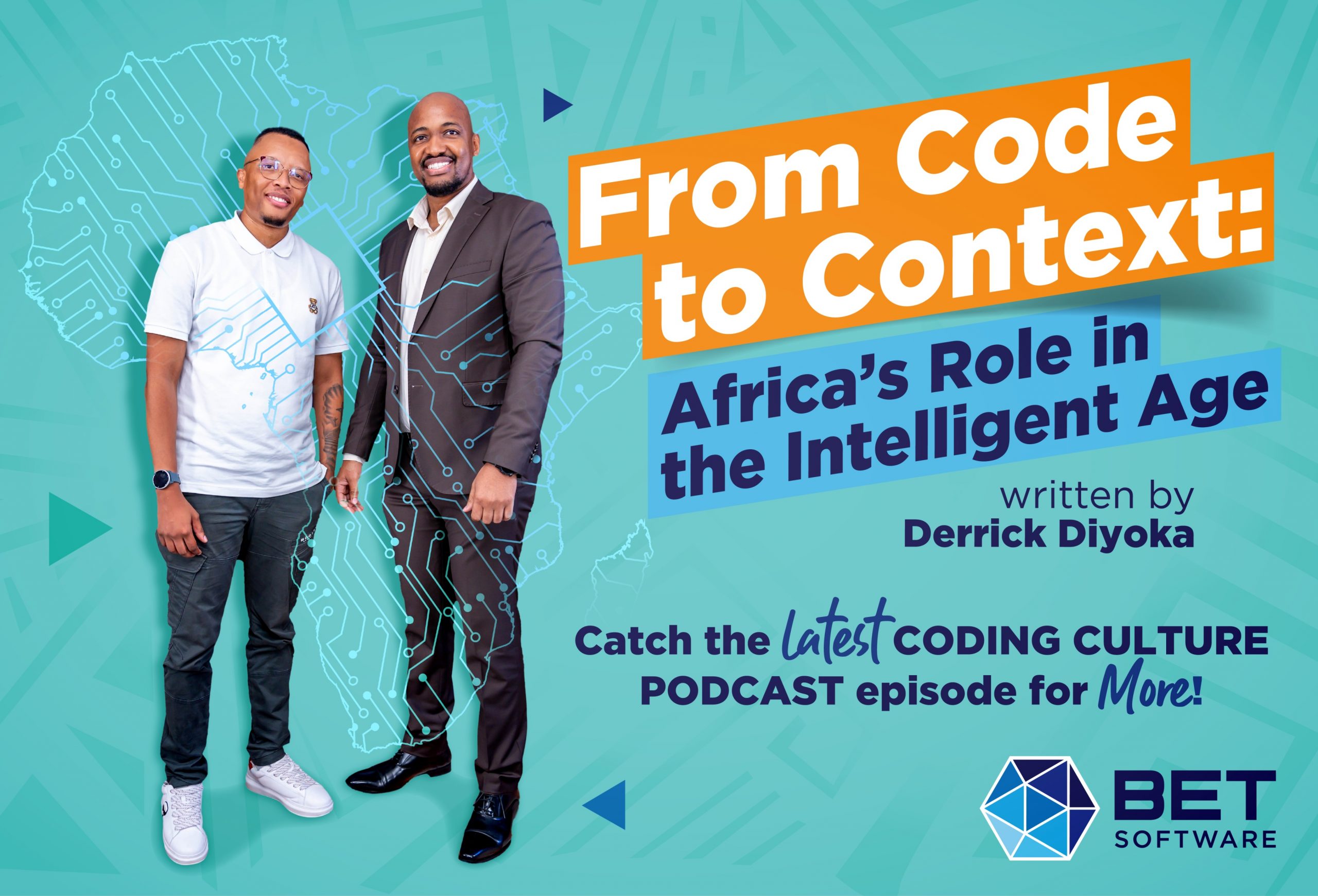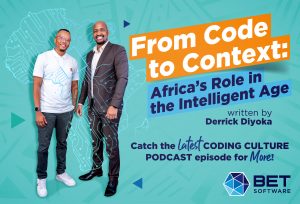Africa is stepping boldly into a new era not just digital, but intelligent. As artificial intelligence (AI) reshapes industries and everyday life across the world, the continent is finding its path forward, powered by youth, homegrown innovation, and a growing tech culture.
In the latest episode of Coding Culture, host Kgang Moloke sat down with Dr Stephen Akandwanaho, a computer scientist, academic, and tech advocate, to explore what the intelligent age means for Africa. His journey, insights, and solutions paint a vivid picture of the continent’s future.
From Humble Beginnings to AI Innovation
Dr Akandwanaho’s career began not in a high-tech lab, but on the ground floor, where he fixed and built computers by hand. What started as hands-on work evolved into a deep fascination with how machines think.
That practical foundation sparked a deeper curiosity about how machines function, leading him to study the Border Gateway Protocol, the backbone of internet traffic routing during his master’s degree, where he designed an improved algorithm for better internet traffic routing.
He later pursued a PhD focused on hyper-heuristics, the kind of algorithms that help machines “think” by choosing how best to think—selecting or generating other heuristics to solve problems adaptively.
His work is inspired by the writings of Alan Turing, the father of artificial intelligence, who asked in 1950: Can machines think? That question sparked decades of research — and for Dr Akandwanaho, it shaped a mission: to make AI work for African realities.
The Shift from Digital to Intelligent
The intelligent age is more than just having access to digital tools. It’s a world where machines learn, reason, and behave more like humans. As Moloke and Dr Akandwanaho discussed later on in the Coding Culture episode, this shift is already underway in Africa and it’s being driven from within.
Drones in Rwanda and Ghana now deliver blood and medicine in under 30 minutes, slashing maternal mortality rates. In Kenya, M-Pesa has turned basic phones into mobile banking tools, revolutionising financial access. Apollo Agriculture uses satellite data to guide small-scale farmers, increasing yields and fighting food insecurity. These innovations didn’t come from Silicon Valley — they came from African minds tackling African problems.
Despite these advances, Africa remains digitally underrepresented. Only 2% of global AI training data comes from the continent, and over 500 African languages have no digital presence. This creates biased systems that don’t understand local needs.
But Dr Akandwanaho sees opportunity in this gap. The lack of data isn’t a dead end, it’s an invitation to create our own datasets, our own AI models, and our own future. It’s about building systems that reflect African values, languages, and behaviours AI built by Africans, for Africans.
The Youth Factor: Africa’s Secret Weapon
Africa’s greatest advantage may be its people. With 60% of the population under the age of 25, the continent is home to the youngest workforce in the world. But it also faces a stark skills gap: less than 5% of global AI talent is based here.
That’s why institutions like Richfield, where Dr Akandwanaho works, are investing heavily in upskilling. “If you stand still in tech, you’re sinking,” he says, a reminder that the future belongs to those willing to learn, unlearn, and relearn. His focus is not just on coding, but on critical thinking, problem-solving, and applying tech to real-life issues.
The fear that AI will take all jobs is real, but incomplete. While repetitive roles may disappear, new ones are being created. Think fintech developers, machine learning specialists, and AI ethicists jobs that didn’t exist 15 years ago, but are now in high demand.
Instead of fearing the future, Dr Akandwanaho urges young Africans to shape it. Understand your community’s needs. Use your language. Build with context. The best innovations don’t come from labs; they come from solving real problems in familiar places.
This Is Africa’s Moment
The intelligent age isn’t something happening to Africa, it’s something that can happen through Africa. With the right skills, mindset, and support, young Africans can lead the charge, not just participate in it.
Ask yourself: What problem around me could technology solve? Am I learning the right skills to be part of the solution?
To hear the full conversation and dive deeper into these ideas, listen to the latest Coding Culture episode featuring Kgang Moloke and Dr Stephen Akandwanaho.






